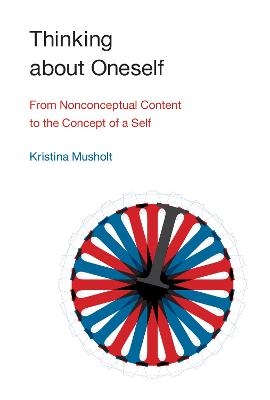
Thinking about Oneself
From Nonconceptual Content to the Concept of a Self
Seiten
2015
MIT Press (Verlag)
978-0-262-02920-9 (ISBN)
MIT Press (Verlag)
978-0-262-02920-9 (ISBN)
- Titel ist leider vergriffen;
keine Neuauflage - Artikel merken
A novel theory of self-consciousness and its development that integrates philosophical considerations with recent findings in the empirical sciences.
In this book, Kristina Musholt offers a novel theory of self-consciousness, understood as the ability to think about oneself. Traditionally, self-consciousness has been central to many philosophical theories. More recently, it has become the focus of empirical investigation in psychology and neuroscience. Musholt draws both on philosophical considerations and on insights from the empirical sciences to offer a new account of self-consciousness-the ability to think about ourselves that is at the core of what makes us human.
Examining theories of nonconceptual content developed in recent work in the philosophy of cognition, Musholt proposes a model for the gradual transition from self-related information implicit in the nonconceptual content of perception and other forms of experience to the explicit representation of the self in conceptual thought. A crucial part of this model is an analysis of the relationship between self-consciousness and intersubjectivity. Self-consciousness and awareness of others, Musholt argues, are two sides of the same coin.
After surveying the philosophical problem of self-consciousness, the notion of nonconceptual content, and various proposals for the existence of nonconceptual self-consciousness, Musholt argues for a non-self-representationalist theory, according to which the self is not part of the representational content of perception and bodily awareness but part of the mode of presentation. She distinguishes between implicitly self-related information and explicit self-representation, and describes the transitions from the former to the latter as arising from a complex process of self-other differentiation. By this account, both self-consciousness and intersubjectivity develop in parallel.
In this book, Kristina Musholt offers a novel theory of self-consciousness, understood as the ability to think about oneself. Traditionally, self-consciousness has been central to many philosophical theories. More recently, it has become the focus of empirical investigation in psychology and neuroscience. Musholt draws both on philosophical considerations and on insights from the empirical sciences to offer a new account of self-consciousness-the ability to think about ourselves that is at the core of what makes us human.
Examining theories of nonconceptual content developed in recent work in the philosophy of cognition, Musholt proposes a model for the gradual transition from self-related information implicit in the nonconceptual content of perception and other forms of experience to the explicit representation of the self in conceptual thought. A crucial part of this model is an analysis of the relationship between self-consciousness and intersubjectivity. Self-consciousness and awareness of others, Musholt argues, are two sides of the same coin.
After surveying the philosophical problem of self-consciousness, the notion of nonconceptual content, and various proposals for the existence of nonconceptual self-consciousness, Musholt argues for a non-self-representationalist theory, according to which the self is not part of the representational content of perception and bodily awareness but part of the mode of presentation. She distinguishes between implicitly self-related information and explicit self-representation, and describes the transitions from the former to the latter as arising from a complex process of self-other differentiation. By this account, both self-consciousness and intersubjectivity develop in parallel.
Kristina Musholt is Professor of Cognitive Anthropology at the Department of Philosophy at Leipzig University.
| Reihe/Serie | Thinking about Oneself |
|---|---|
| Zusatzinfo | 1 line drawing |
| Verlagsort | Cambridge, Mass. |
| Sprache | englisch |
| Maße | 152 x 229 mm |
| Themenwelt | Geisteswissenschaften ► Philosophie |
| Geisteswissenschaften ► Psychologie | |
| ISBN-10 | 0-262-02920-0 / 0262029200 |
| ISBN-13 | 978-0-262-02920-9 / 9780262029209 |
| Zustand | Neuware |
| Informationen gemäß Produktsicherheitsverordnung (GPSR) | |
| Haben Sie eine Frage zum Produkt? |
Mehr entdecken
aus dem Bereich
aus dem Bereich
wie Philosophie uns helfen kann, unseren Weg zu finden
Buch | Hardcover (2023)
dtv Verlagsgesellschaft
26,00 €


